Thessaloniki is a city in northern Greece with a diversified history. Distinct eras range from the Hellenistic, Roman, Byzantine, and Ottoman. Today the city is distinctly Greek and predominantly Christian, yet relics of prior empires still remain.
Our first day brought an unaccommodating jet lag. We ventured out at 6am in search of sunrise views and bougatsa, a traditional Greek pastry.
In his essay The Loss of the Creature, Walker Percy speaks of the “symbolic complex,” a package of preconceived notions and expectations which distort and distract us from a direct experience of reality. The essay begins with a description of a sightseer visiting the Grand Canyon for the first time, the experience itself measured in comparison to what the sightseer believes they are supposed to observe. In joining a National Park Service guided tour, viewing the canyon largely through a photographic lens, the sightseer places further experiential distance between themself and the landscape as it is.
Percy writes, “It is due altogether to the eager surrender of sovereignty by the layman so that he may take up the role not of the person but of the consumer.” Cutting deeper to the point, Percy says: “The source of his delight is the sanction of those who know.'
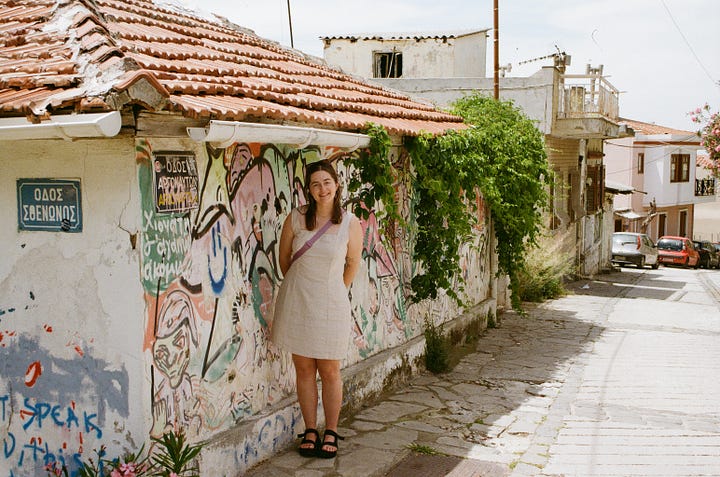
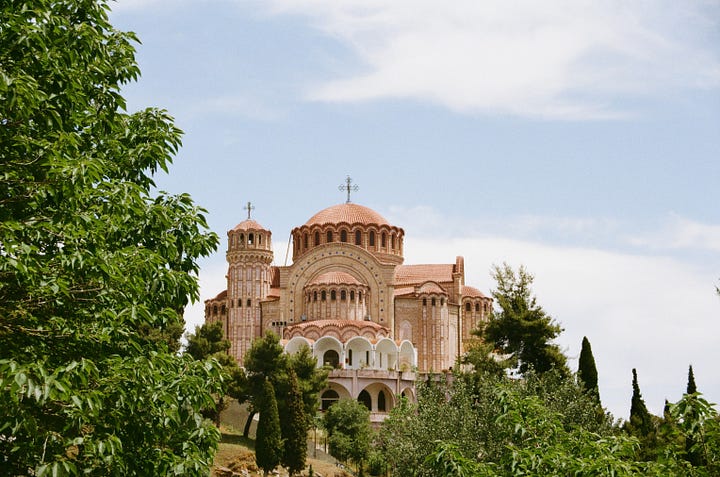

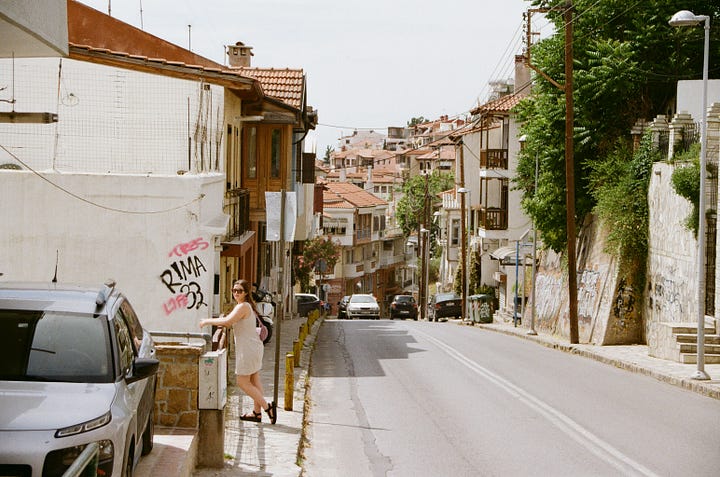
The symbolic complex goes so far as to convince me of my American guilt, a false belief that while traveling I somehow represent the entirety of the US’ reputation and clownish image.
At this opposite end of the spectrum from ignorance is a sort of paranoia, a constant vigilance that one is engaging in a respectful, measured way. This, too, restricts one from an authentic experience.
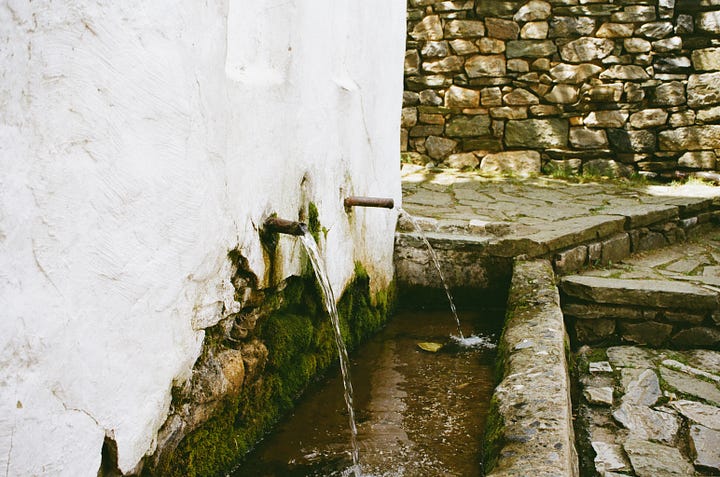
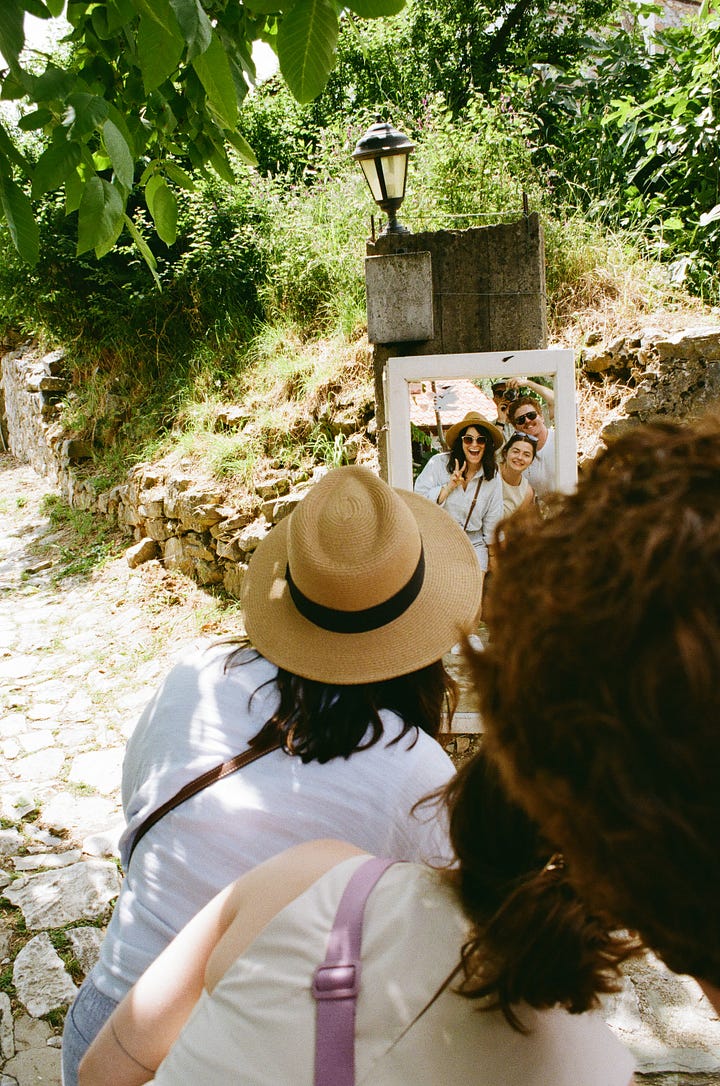
Nestled into a cliff-side tavern, our cold Mythos precipitating in the heat of the day, I asked my companions, “Do you ever get sad while traveling? Are you ever in your head about doing it the right way?”
Looking out across the view of the ocean, one of them shook his head and said plainly, “Never. I get invigorated.”
His poise and unquestioning nature left me without reply. I took a drink of my beer and felt a resolve begin to grow within.
Sitting on a hillside in Scotland two summers ago, waiting for the Hogwarts Express train to pass by on the Glenfinnan Viaduct, I fell prey to a cheapened experience at the hands of the symbolic complex. Online photos and videos inevitably fail to show the crowds of other tourists seeking to consume the same moment. In an act of defiance, you might call it, we left with a photo of not the train but the crowd—all staring through their phones—and a resolution to push back from future impulses toward the preconceived.
In seeing only that which we’re encouraged to see, Percy asks the question: “Is looking like sucking: the more lookers, the less there is to see?” At the most famous, touristy sites, it can certainly feel this way, but the encouraging truth is that there’s always more to see, so long as we’re committed to breaking from the script.
In key lines throughout the essay, Percy hints at how we can move toward authentic experience by: avoiding the role of the consumer, embracing the present moment, and venturing off the beaten path. Perhaps it is naive to think we can travel some place with little to no prior research or itinerary, but it is possible and something which I find increasingly attractive.
All of this serves to challenge our assumptions of what we think an experience is meant to be—the picture postcard moment that so often leaves us feeling shallow and disconnected.
These photos are one way I’ve chosen to take back a direct experience of the world. I bought a cheap film camera precisely so I would spend less time looking through the lens of my smartphone, thereby distracted by maps, Reddit travel threads, and food recommendations. Compared to digital photography, film is finite—36 photos per roll. I’m forced to consider the composition of the shot, consciously absorbing the details of my surroundings, all before I snap the shutter open and expose the film to the scene I’ve already experienced for myself. Bringing just a few rolls, I return home with a cherished collection of photos emphasizing quality over quantity.
Through this practice have been unexpected outcomes: a new creative outlet and a kinship with my grandfather’s retirement as an amateur photographer. The homes of my parents, my sister, and I are all adorned with his photos, and as I learn the art for myself there is a tethering to how he might have seen and experienced the world.
It is both true that life is not easy and modern amenities and services have made living infinitely simpler. Topics of inequality aside, to be a consumer is easy. Our world, and our own thoughts, are shaped by a system that wants and needs us to consume. But in consuming the world, both materially and metaphysically, The Loss of the Creature makes one ask what it is they’re giving up.
The kneejerk reaction might be creation. I sense a yearning across society for opportunities—or maybe permission—to create something of their own. I am currently writing a novel and the act of producing entirely new scenes and character arcs is a form of magic I don’t experience elsewhere. But even in creation we can get carried away, lose sight of what or why we’re creating in the first place.
I believe Percy is aiming toward another state, a neutral reception of reality. Words like “peace” and “contentment” feel associated in my mind. Maybe that’s mindfulness, encountering the world for what it is.

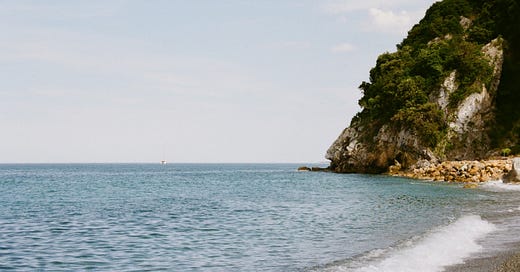




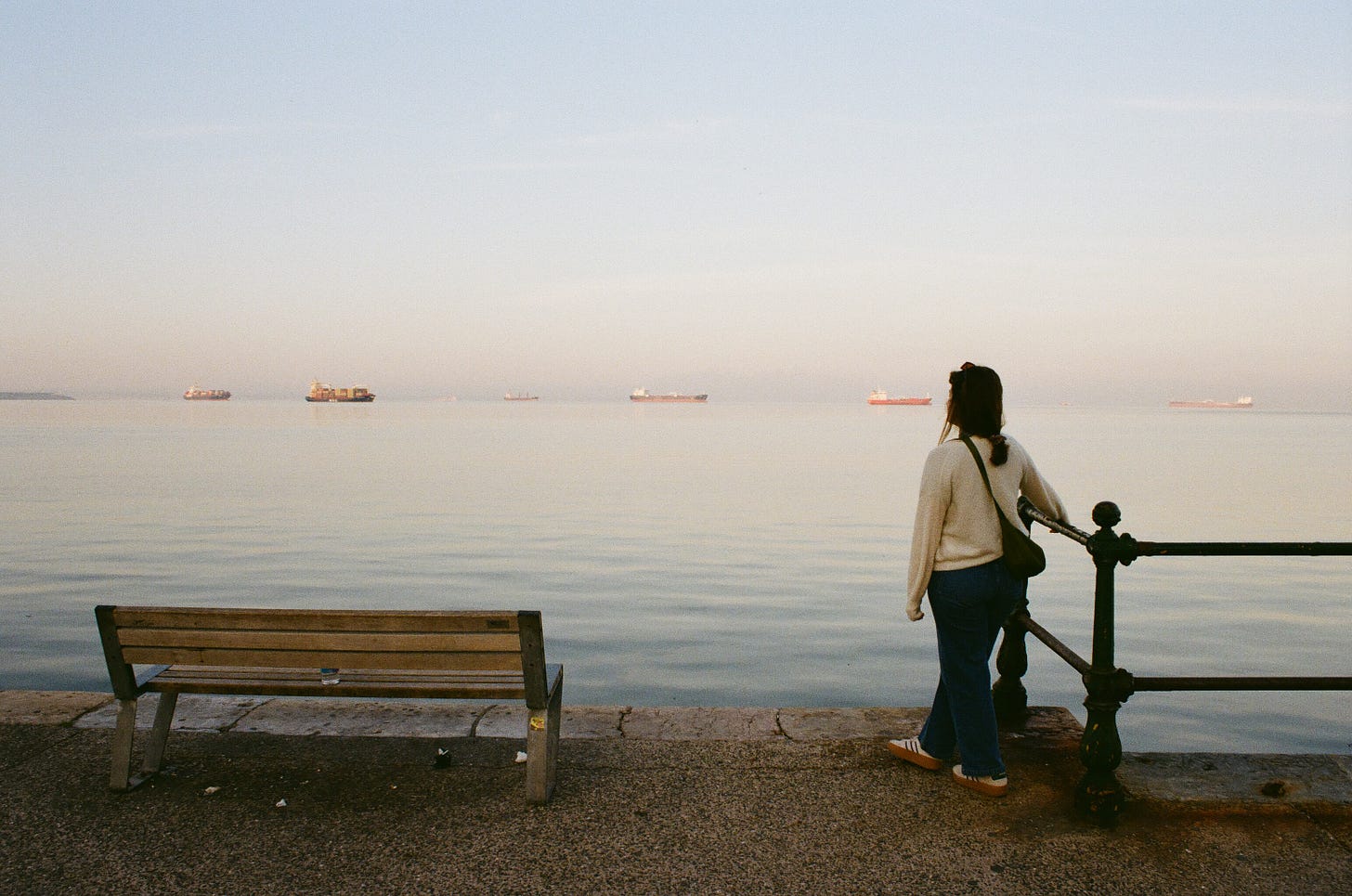
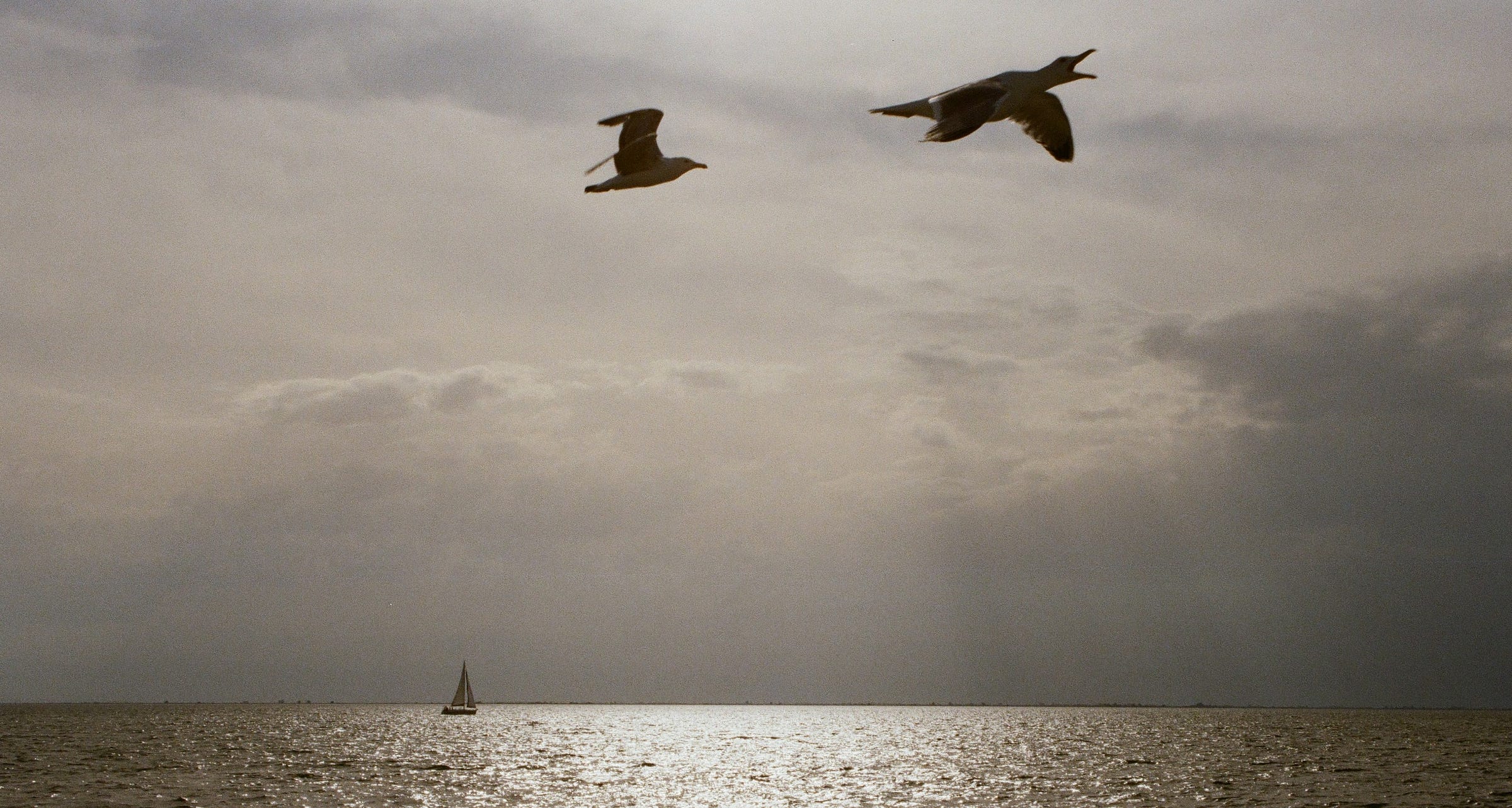


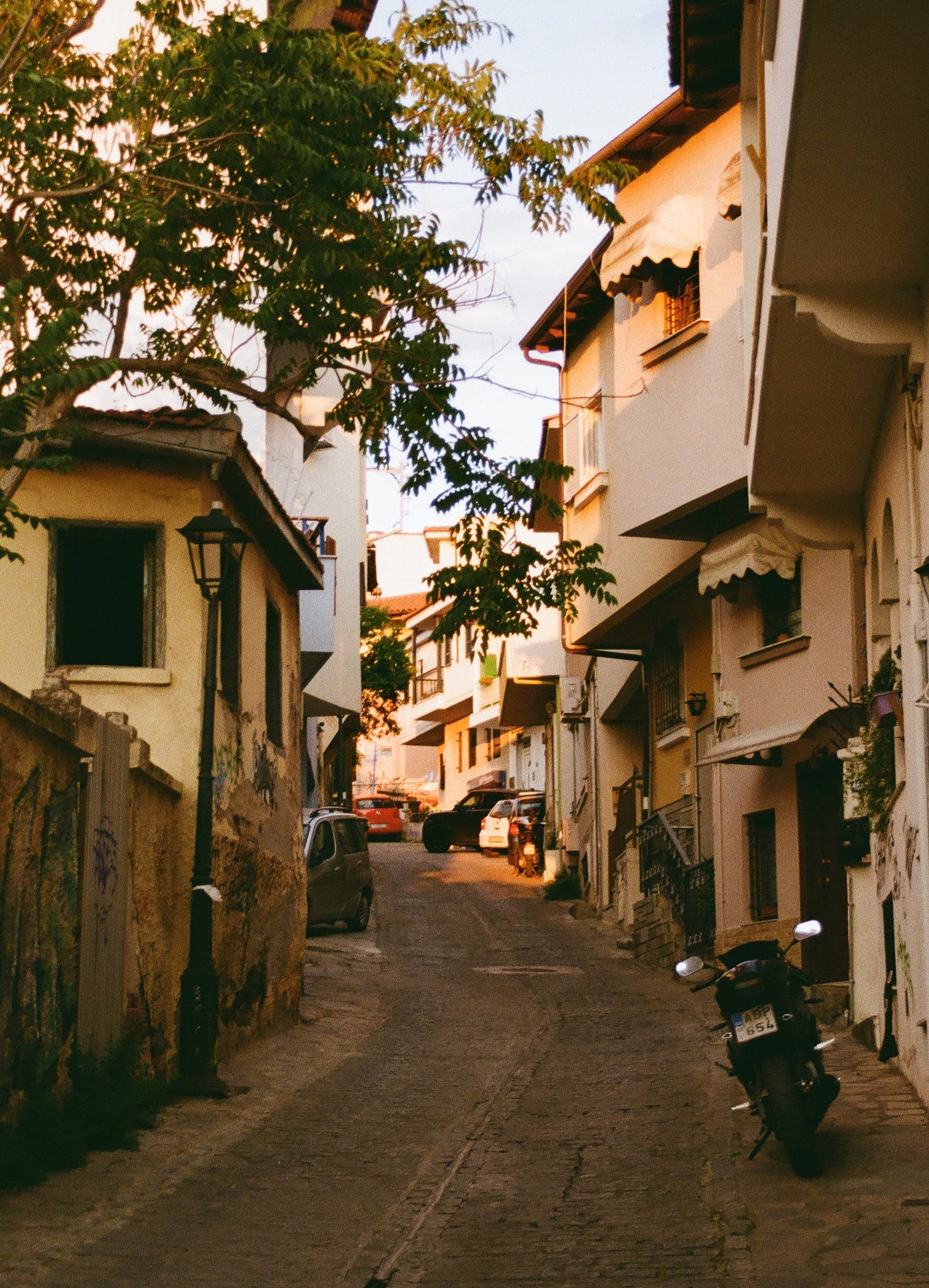



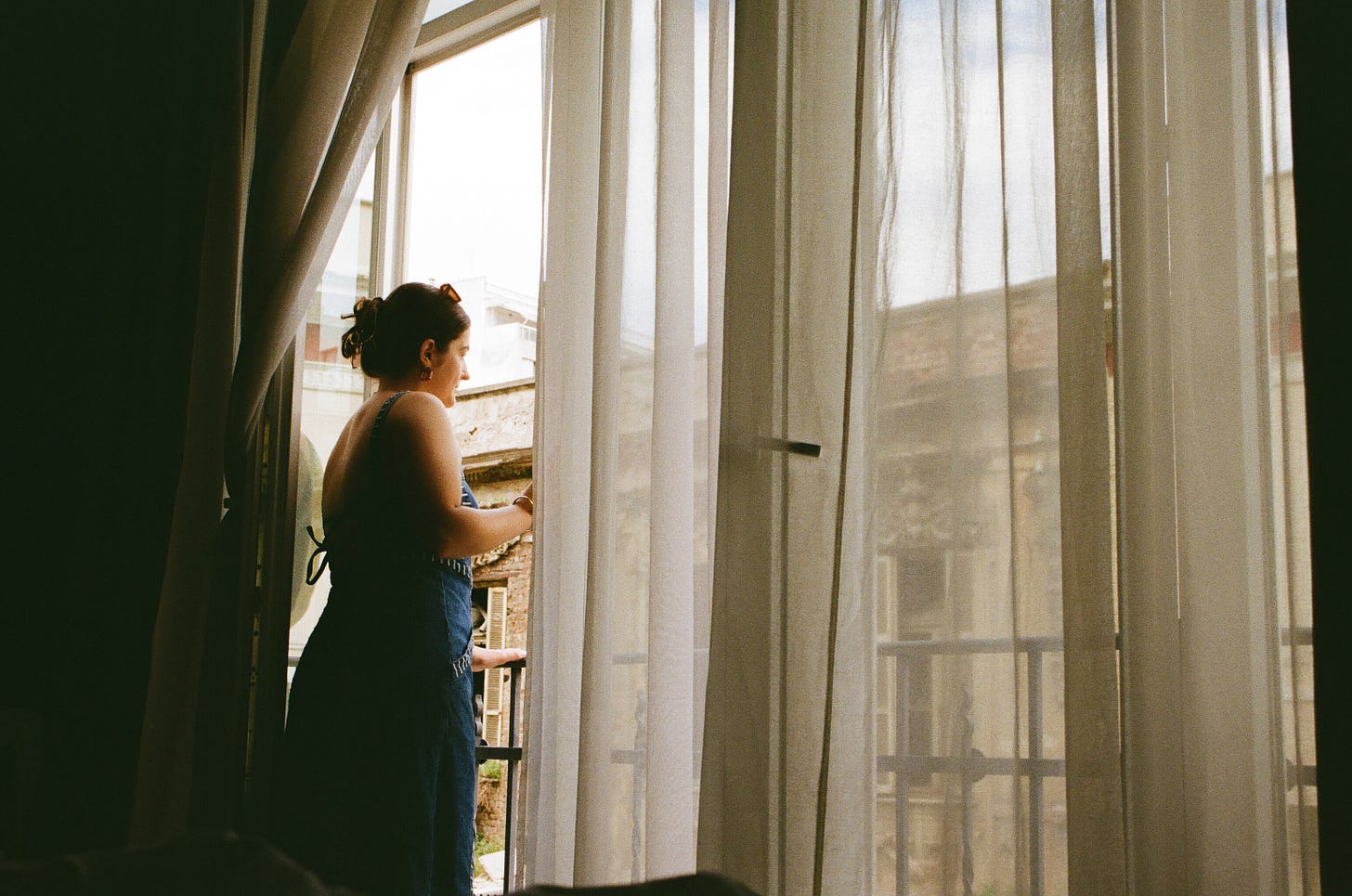

The idea of the "Symbolic Complex" is fascinating and something I struggle with when traveling myself. Doing prep work and research before visiting a place seems vital and almost respectful, but it also sort of lays the groundwork for the Symbolic Complex in setting expectations and building preconceived mental images. I wonder how forgoing some pre-trip recon, and instead relying more on boots-on-the-ground information gathered on site, would affect the travel experience.